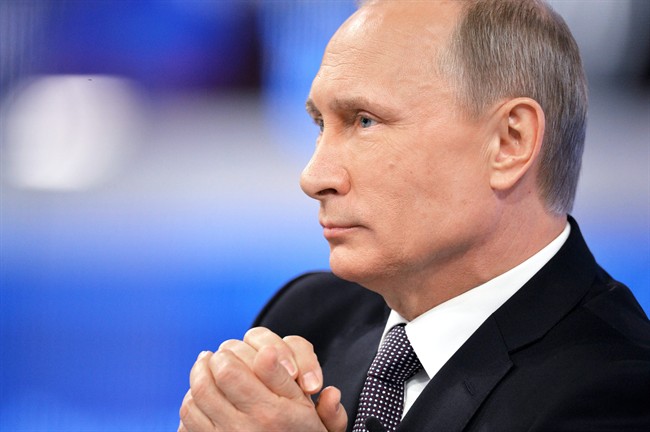Will U.S. President Donald Trump drop the sanctions against Russia? It might not really matter, according to one expert who says the sanctions have never really been that effective anyway.

The connections between Trump’s inner circle and Russia have been thrust into the spotlight yet again, this time prompting the sudden resignation of national security adviser Michael Flynn.
Flynn resigned Monday night following the revelation he gave “incomplete information” regarding his contact with Russia’s ambassador to the U.S. as Barack Obama imposed sanctions against Russia over hacking of the U.S. presidential election. Flynn first denied, then conceded he may have discussed the sanctions with the Russian envoy.
READ MORE: Russia counts days until Donald Trump’s inauguration, blasts Barack Obama
At the time, Trump spoke out against any such action toward Russia, saying “we ought to get on with our lives.” Trump has also said he would consider easing sanctions should Russia prove to be a useful ally.
That round of sanctions was just the latest to be placed on Russia by the U.S. and other countries. Obama slapped Russia with sanctions, in co-ordination with the European Union, in March 2014 for the country’s annexation of Crimea, and ensuing support of pro-Russia rebels in Ukraine.
Canada joined in, imposing economic sanctions and travel bans on a number of Russian officials.
Sanctions are essentially a punishment, said Aurel Braun, professor of international relations and political science at the University of Toronto and an associate of the Davis Center for Russian and Eurasian Studies at Harvard University.
“The Obama administration decided that the best response rather than a military confrontation was to impose sanctions, and they talked about smart sanctions — targeted sanctions,” said Braun.
WATCH: Donald Trump: ‘If Putin likes me, I consider that an asset’

Instead of targeting, say, the banking sector as a whole, they went after certain Russian individuals and companies.
“As Russia continued to act more aggressively, they imposed some new sanctions against certain individuals who were associated with the military or with the secret service … all meant to punish Russia, to deter Russia, and these sanctions have obviously been an inconvenience for Russia.”
READ MORE: Donald Trump urged to stop making nice with Russia
Braun said though they came with a lot of fanfare, the sanctions against Russia were actually rather weak.
“The problem with sanctions is they rarely work, because countries have a way of getting around it.”
The Obama administration was never prepared to pay a significant price, Braun said, watering down its actions.
“The most effective sanctions are those where the countries engaged are prepared to make sacrifices themselves, because it’s going to cost you as well to make sanctions effective,” Braun explained.
WATCH: Russians celebrate Trump victory, salute victory for ‘whole world’

Sanctions usually come with a catch.
For example, in response to the 2014 sanctions Russia banned all food imports from the countries involved.
Countries with close business ties to Russia such as Italy and Hungary have questioned the measures’ clout. In November, a senior Finnish member of parliament called the sanctions against Russia “not effective,” adding that the country’s exports have suffered as a result.
The sanctions prompted Russia to strengthen its ties with China, and contributed to a surge in popularity for Russian President Vladimir Putin, the World Economic Forum reported.
It’s also been argued that such sanctions decrease Western leverage, hurt Western exporters and cost jobs in an already fragile economic environment, a report by the European Union Institute for Security Studies noted.
While the full impact of sanctions are hard to measure, Braun said it was a “happy coincidence” that around the time the sanctions were imposed, Russia’s energy-dependent economy took a hit from the crash in oil prices.
READ MORE: Republicans and Democrats band together to challenge Donald Trump on Russia
“If energy prices recover, you could see how marginal these sanctions really are,” said Braun.
Looking forward, Braun said while the U.S. might soften sanctions against Russia, new complications could crop up as Trump’s agenda potentially comes to clash with Putin’s. For instance, Trump’s intent on becoming an energy exporting superpower could be a “major blow” to Russia.



Comments